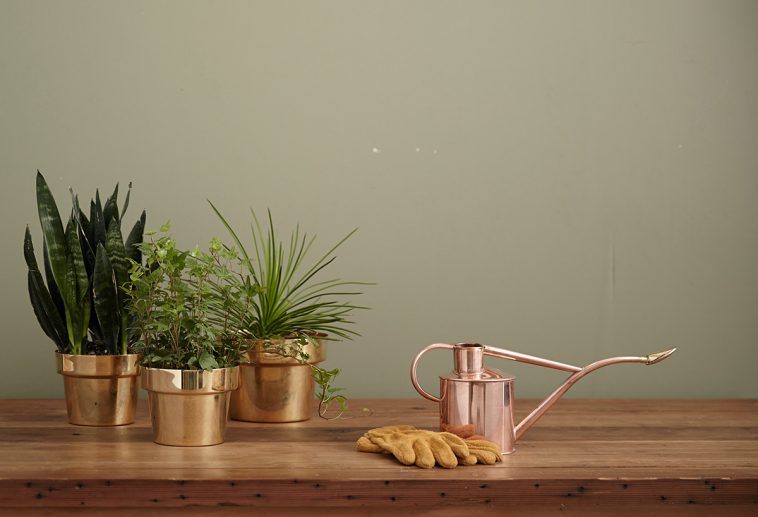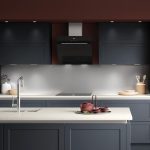Container gardening will keep the garden’s momentum going through the winter months. That’s because potted plants will add colour and life to any part of your house or garden. Just follow these simple steps to get started.
In this article, we cover:
- Choosing the right container for different types of plants
- Finding the right potting mixture
- Types of plants suitable to containers
- Configurations for inside and outside
- How to care for potted plants
Choose your container
Clay. Terracotta, which is fired clay, has a distinctive orange-brown colour and requires minimal maintenance. Still, the porous surface may begin to whiten up with water salts or green up with moss – you can either leave it age, or wipe it off with water and vinegar. Glazed clay pots are a variant of the classic, and look good even without the plant. Glazed clay pots can readily match any colour or contrast with any backdrop; they also wick away less water than uncoated terracotta.
Metal. Aluminium, tin, copper and other metal containers are especially trendy for balcony gardening but are also a great match for modern new builds. Metal can, however, be susceptible to hot summers. Plants may stress out because of the heat so best to choose shaded or cooler locations.
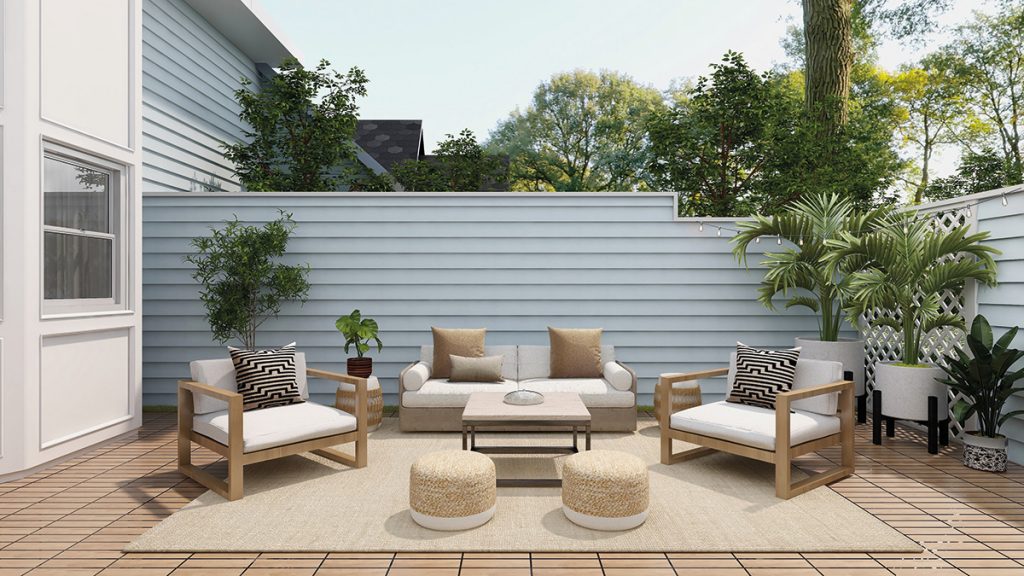
Wood containers come and go out of fashion, but I love their upgradeability. They can take a lick of paint and are thus instantly transformed. If purchased without lining, consider adding one to extend lifetime and prevent the container from leaking water.
Upcycled. Think old kitchen colander or wooden wine crate, whiskey barrel or pallet, galvanised attic water tank or vintage coal skuttle. Any container can do the trick; you just need enough space to hold growing media suitable for good root runs, and adequate drainage.
Plastic. Personally, I am not a fan of plastic containers – planet-wise but they can also sweat the roots.
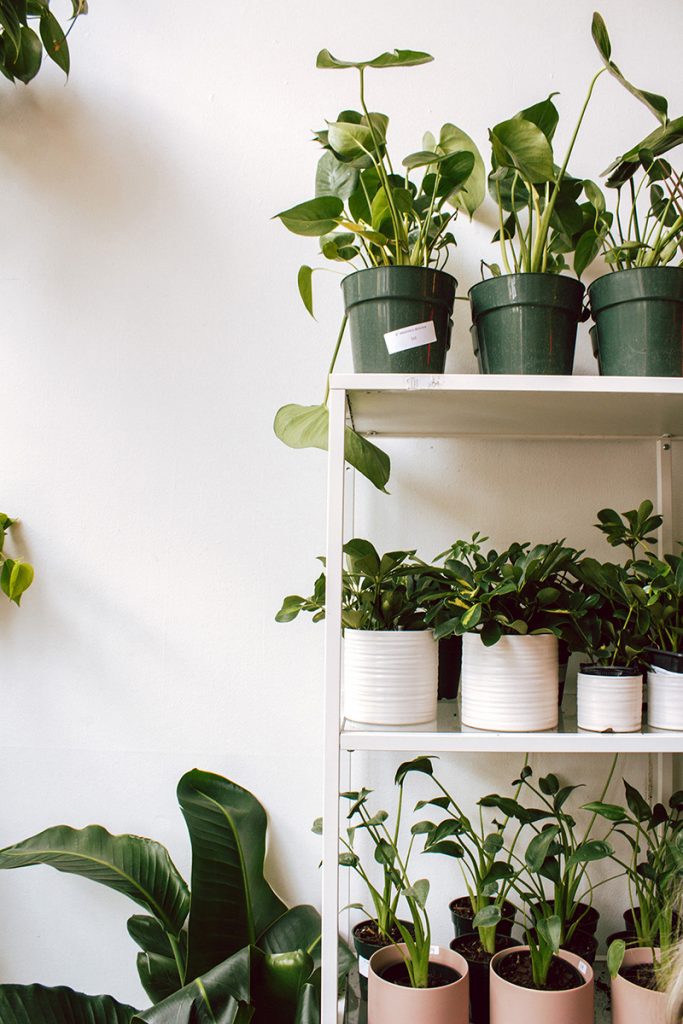
Container gardening: Finding the right potting mixture
The ultimate success of any plant is what it is grown in, and that’s not the container but the growing media – the soil or compost mix that will support and nurture the root system.
Container planting gives you the opportunity to introduce any type of growing media; you are not restricted to the pH and particulars of your garden. You can grow acid loving plants in ericaceous compost and have the best of both worlds in your otherwise limey garden. Or you could bring some dry preference planting arrangements to your normally winter wet garden by amending the container mix with grit and free draining compost.
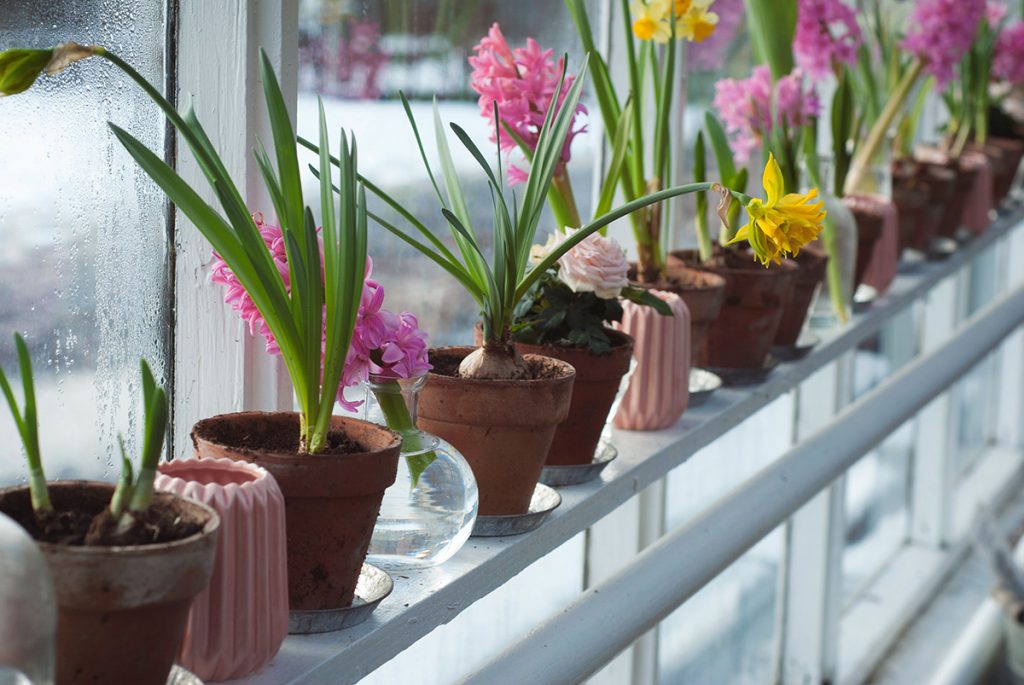
There are many premixed growing media types in your garden centre or builder’s merchant, conveniently bagged up, or you can make up your own. I usually add in some real soil to store bought mixes – just for a bit of body – but it is not a prerequisite. That said, don’t be tempted to only use garden soil as you’ll never move the plant around if you do. Remember, one of the benefits of containers is their portable nature.
The choice to mix in perlite, pellet feed, or wetting agents, is all dependent on the need of the plant. If you are planting perennials, shrubs or other long term commitments then a good nutrient base is essential. If the container is purely seasonal, and will be refreshed in a few months’ time, then standard compost will support the active health of the plants.
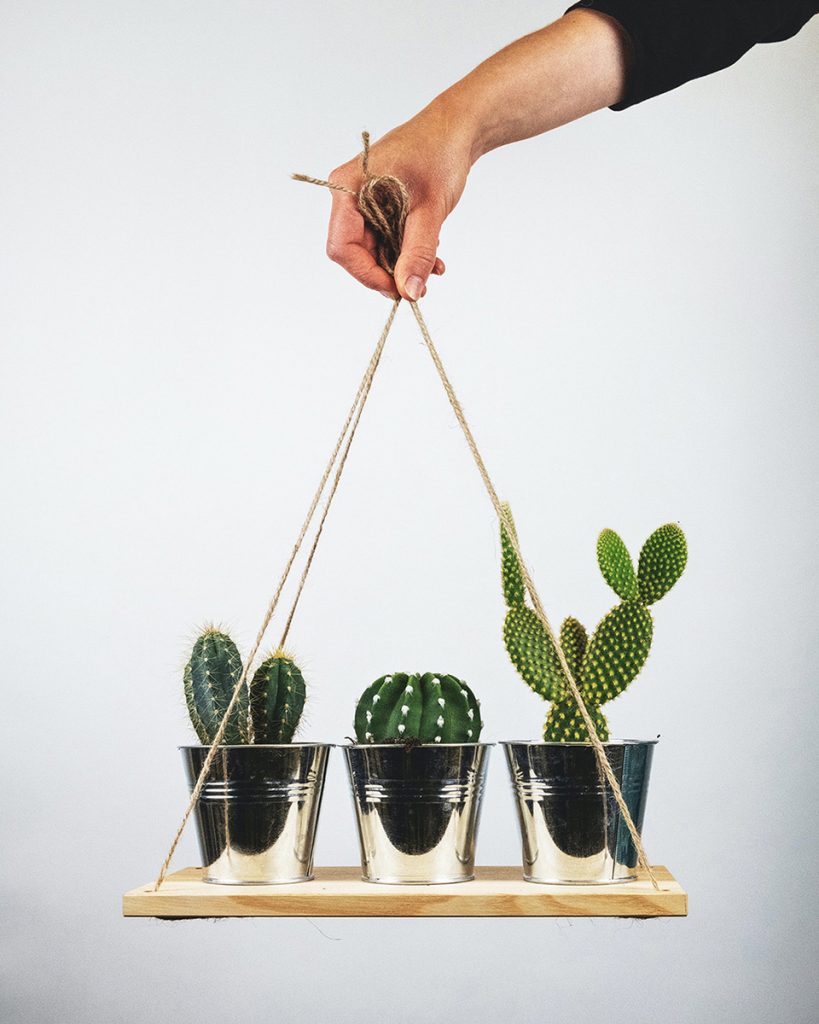
Add your favourite plants
Here are the stalwarts of container gardening that look great over winter, and even into spring.
Shrubs. Autumn and winter performing shrubs such as skimmia, sarcococca, daphne and viburnum can be the backbone of larger container displays as much as box, bay or topiary picks can be for summer containers.
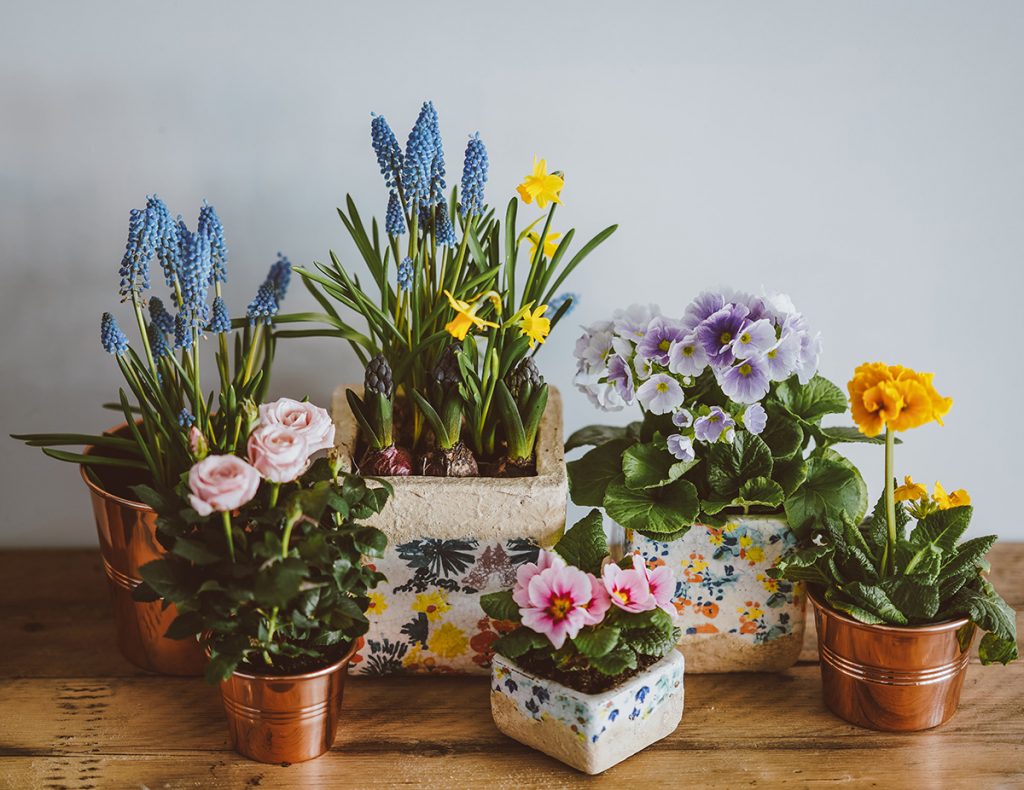
Grasses. Carex, fescue, stipa and other ornamental grasses add texture and bold colours to complement shrubs or to offset herbaceous perennials looking good late in season – echinacea, asters, agapanthus, helianthus, chrysanthemums, sedums etc.
Flowers. Traditional autumn/winter season bedding can add splashes of colour and fill any gap. Try the wow factor of primroses, polyanthus, cyclamen, campanulas, violas and pansies.
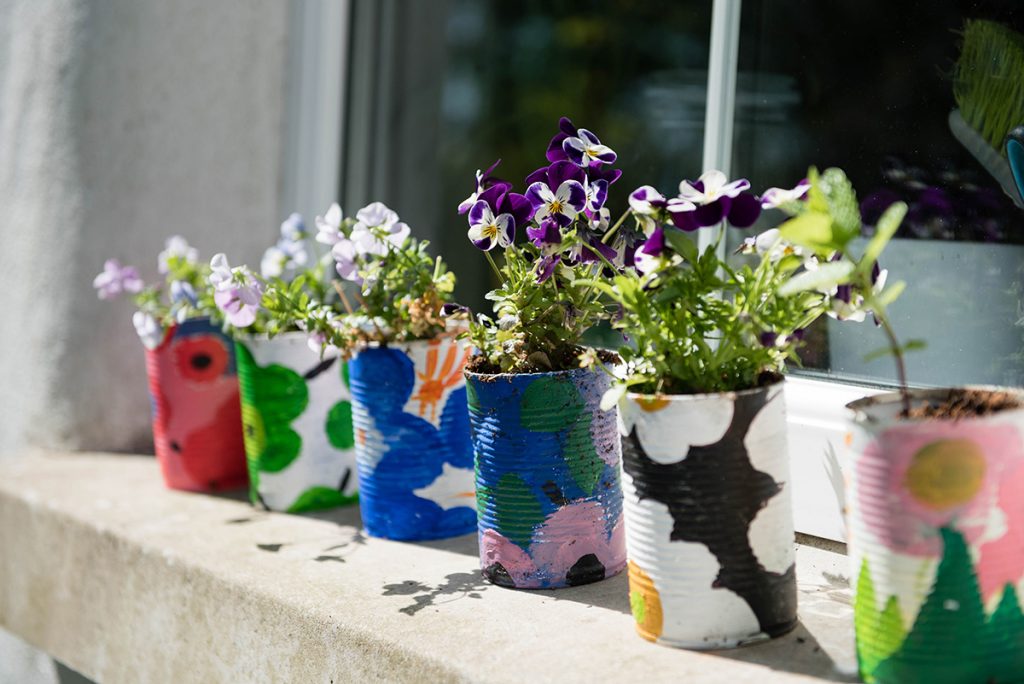
Mix and match. You can break tradition and include ferns and interesting foliage plants from your local garden centre. For example, a large metal container is well suited to a fragrant daphne shrub underplanted with swishing grasses and a burst of ever-stunning cyclamens. The choice is yours!





